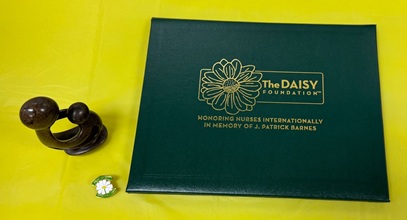Master of Public Health

Request Information
Master of Public Health

As part of the public health courses in the Master’s Degree in Public Health at South University, students have the opportunity to learn how to handle health-related issues like controlling infectious diseases, improving access to healthcare, and reducing environmental hazards. The Virginia Beach campus prepares you for a practicum experience in which you apply your new knowledge, skills, and abilities to a real-world public health setting, such as a government or social service agency, community or public health organization, or other approved business*.
*South University does not promise or guarantee licensure, employment, or salary amounts.
South University, Richmond, and South University, Virginia Beach, are certified to operate in the Commonwealth of Virginia pursuant to Title 23, Chapter 21.1, §23-276.4 of the Code of Virginia by the State Council of Higher Education for Virginia (James Monroe Building, 101 North 14th St; Richmond, VA 23219; 804-225-2600; www.schev.edu).
Council on Education for Public Health
Master of Public Health (MPH) at South University is an applicant for accreditation by the Council on Education for Public Health. The accreditation review will only address the MPH degree at South University. Other degrees and areas of study offered by South University will not be included in the unit of accreditation review. For additional information concerning the application and accreditation process, please visit CEPH’s website, ceph.org.
Admission Requirements
Procedure for Admission to the Master of Public Health
The criteria used in determining admissions to the Master of Public Health degree program include:
- Completion of a bachelor's degree from an accredited institution, with a cumulative grade point average (CGPA) of at least 2.5 (on a scale of 4.0) OR
- An earned graduate degree from an accredited institution with a CGPA of 3.0 or higher.
- Completion of an undergraduate statistics course or equivalent (approved by the Public Health Department Chair/Program Director) with a grade of “C” or better is required for Master of Public Health. Students accepted provisionally into the program without having completed and earn a “C” or better in the required Statistics course must complete the course within one quarter after their acceptance date or will be dismissed. Students cannot appeal the dismissal from the university as a result of failure to meet the conditions of provisional admission.
- Submission of official transcripts from all postsecondary institutions attended within 5 weeks of the class start date (refer to Conditional Acceptance).
For additional admissions information please see the admissions section here.
Career Outlook
These are some of the career options* you can explore when you have earned your degree:
Medical and Health Services Supervisors/Managers
Community Health Workers
Medical Administrative or Office Staff
*South University does not promise or guarantee licensure, employment, or salary amounts.
MPH at South University is an applicant for accreditation by the Council on Education for Public Health. The accreditation review will only address the MPH degree at South University. Other degrees and areas of study offered by South University will not be included in the unit of accreditation review.
Course Requirements
Outcomes
Offered at Online Programs, Savannah and Virginia Beach campuses, with all classes offered in an online format. Fully online programs may include an in-person clinical or practicum experience.
Note: Not all Online Program offerings are available to residents of all U.S. states. Please contact an admissions representative for further information.
The Master of Public Health (MPH) degree program at South University is a 56-credit program designed to educate students and working professionals about areas of critical importance to local, national, and international public health challenges. The MPH program is organized around a curriculum which consists of core competencies, principal courses, and a practicum experience. The core courses cover the five main areas of public health competencies. The principal courses are designed to cover a broad range of topics to help develop each student's knowledge, skills, and abilities in public health practice and to further develop the skillsets of working professionals in the public health field. Lastly the students take part in a practicum experience that synthesizes information learned throughout the program and as such should be taken as the last course in the program.
Mission Statement
Our public health program is dedicated to preparing an inclusive community of practitioners, educators, and scholars who are committed to working in their communities to promote health equity for all.
Vision Statement
A future where everyone regardless of their background, location, or income, has the potential to lead the healthiest life possible
Core Values
Health Equity: The program is committed to creating an environment where all individuals can reach their full health potential. Students are empowered to address health challenges across various populations, equipping them with the skills to improve the quality of life and access to healthcare. This includes understanding the difference between health equality and equity, recognizing and addressing the lack of resources such as funding, transportation, and social conditions that impact health outcomes.
Community-Based: The program emphasizes a community-based approach to public health. It focuses on local communities, particularly those with limited resources and in need of greater capacity. Students are trained to work closely with community members, informing policy makers, and engaging distance-based stakeholders with limited accessibility. The program aims to address health disparities and support populations that have historically been underserved or marginalized.
Practice Approach: The program prioritizes training students to work in professional practice. It prepares students to tackle real-world situations and meet the needs of communities through assessment and partnership with community members. Students are encouraged to become change agents and actively engage in community-based participatory practices. They are equipped to explain public health concepts effectively within the community setting and contribute to practical solutions.
Inclusion: The program is committed to fostering an inclusive environment that supports students from non-traditional backgrounds and those with limited access to opportunities. It seeks to ensure that participatory engagement within the program reflects the communities students relate to. The program actively seeks to include students who may be overlooked or lack access to other public health programs, providing them with the necessary means to pursue education and contribute to the field.
Program Goals:
Teaching: Provide a competency-based curriculum that equips students to practice in communities, to promote public health, and to address health equity issues.
Service: Empower students to work with communities and implement public health practices with cultural humility and respect
Scholarship: Promote health equity in communities by engaging in scholarly activities and preparing students to apply scholarship in public health practice.
Program Student Learning Outcomes
Upon completion of the program Students will:
- Explain the history and philosophy, and core functions of Public Health.
- Apply evidence-based approaches that utilize quantitative and qualitative methods to inform program planning, implementation, evaluation
- Evaluate the organization, structure and function of Public Health and healthcare systems both nationally and globally.
- Design culturally sensitive community-based health programs that address racism, structural bias, and social determinants of health to achieve health equity.
- Develop written and oral public health content that is culturally competent and audience appropriate.
- Apply leadership skills to build partnerships or coalitions that advocate for policies and programs to address community health challenges.
What's New
Latest News and Blogs

Apr 09, 2025
Elevate Your Future: The Power of Continuous Learning
There are many ways to constantly be learning to help improve a career. Explore these tips to help you continuously be learning.

Apr 08, 2025
Celebrate our 2024 DAISY Honorees
Celebrate the 2024 DAISY Honorees from South University. We are so proud of our Honorees for all their hard work.

Apr 01, 2025
Mindfulness for Beginners: How to Get Started
In this next installment of the QEP series, learn some valuable tips to help improve your mindfulness.

Mar 19, 2025
First-Year Student Jeopardy Winners at Florida Academy of Anesthesiologist Assistants
Four first-year Anesthesiologist Assistant students win the Jeopardy game at the Florida Academy of Anesthesiologist Assistants conference.

Mar 12, 2025
Alumni Spotlight: From High School Dropout to CEO
Learn how Nadine Singh utilized her education from South University to create her own healthcare services.

Mar 11, 2025
Psychology Careers: Addiction and Substance Abuse Counselors
Learn how addiction counselors aid in substance abuse and addiction recovery.
Fill out the form and a representative will contact you today to better understand your academic goals plus answer any questions you may have.
Campuses offer flexible learning formats* including: on-campus, virtual instructions, and online courses.
*Clinical, practicum, and externship requirements exist in certain programs and require field experiences. Learning formats may not be flexible.
Success! Your request was submitted. We'll be in touch soon!
In the meantime, you can view some of our FAQs.
If you want to talk to an admissions representative ASAP, please contact us at 1-888-444-3404.
Outstanding Education for Remarkable Careers
We're committed to helping our graduates make impact in their professional and personal lives. We applaud our nursing alumni and the difference they make. Check out what some of our graduates have to say.





